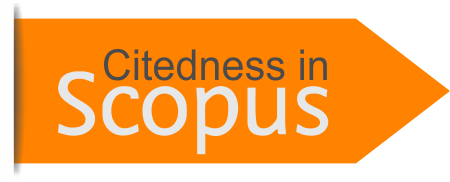KERANCUAN PARADIGMA DALAM PENELITIAN HUKUM EMPIRIS (ANALISIS MATRIKS DISIPLINER MENURUT AULIS AARNIO)
Abstract
Abstract
Legal scientists state that there is a paradigm shift in legal research. Anomalies arise when researchers apply reflective thinking to middle-order theories of legal scholarship. In this case, the legal paradigm could be fallen by a paradigm that comes from outside the legal sciences. The lack of understanding of the concepts that still apply in legal science is the cause of the chaos of the legal research paradigm. This problem is studied using philosophy as an approach and a method. This paper concludes that legal research can develop a paradigm if it focuses on hermeneutical interpretation. As for the social research method, it is limited as a tool to reveal facts only.
Abstrak
Ahli hukum menyatakan adanya pergulatan paradigma dalam penelitian hukum. Anomali muncul manakala peneliti menerapkan pemikiran reflektif terhadap teori orde tengah keilmuan hukum. Dalam hal ini, paradigma hukum bisa diruntuhkan oleh paradigma dari luar keilmuan hukum. Ketidakpahaman terhadap konsep-konsep yang berlaku tetap dalam keilmuan hukum menjadi sebab kekacauan paradigma penelitian hukum. Masalah ini dikaji dengan menggunakan filsafat sebagai pendekatan dan juga metode. Tulisan ini sampai pada simpulan bahwa penelitian hukum dapat mengembangkan paradigma jika fokus pada interpretasi hermeneutika. Adapun metode penelitian sosial, dibatasi sebagai alat untuk mengungkap fakta semata.
Copyright (c) 2023 Jabbar Sabil

This work is licensed under a Creative Commons Attribution 4.0 International License.
Authors who publish with this journal agree to the following terms:
- Authors retain copyright and grant the journal right of first publication with the work simultaneously licensed under a Creative Commons Attribution License that allows others to share the work with an acknowledgement of the work's authorship and initial publication in this journal.
- Authors are able to enter into separate, additional contractual arrangements for the non-exclusive distribution of the journal's published version of the work (e.g., post it to an institutional repository or publish it in a book), with an acknowledgement of its initial publication in this journal.
- Authors are permitted and encouraged to post their work online (e.g., in institutional repositories or on their website) prior to and during the submission process, as it can lead to productive exchanges, as well as earlier and greater citation of published work.





















